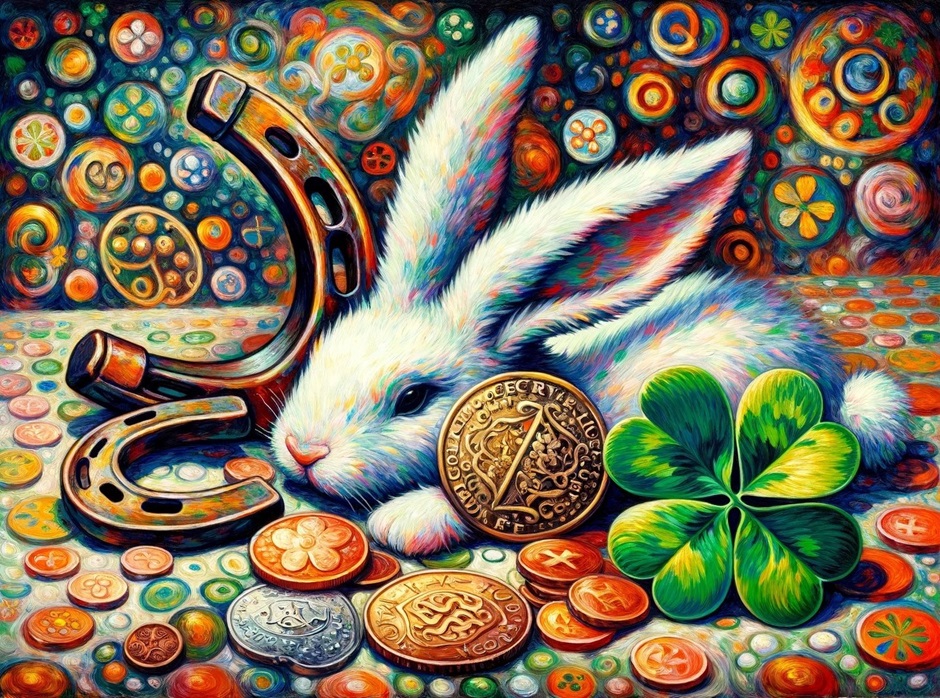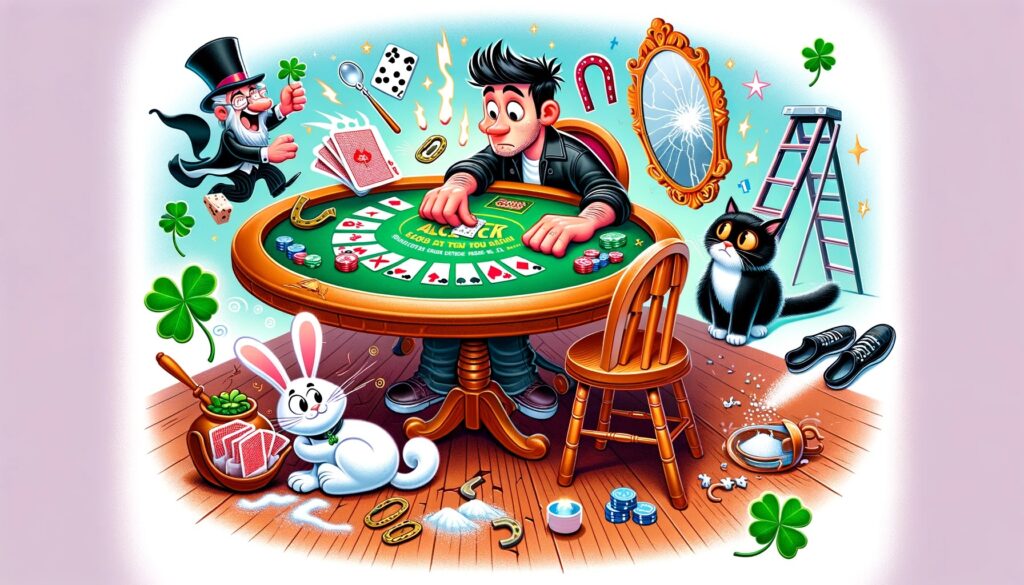Superstition and Gambling
Lucky Charms – More Than Just Trinkets
Lucky charms are objects that are thought to bring good luck to their owners, and to no one’s surprise this is exactly what gamblers use them for. Some of the most well-known are:
- Rabbit’s Foot: Traditionally considered a symbol of fertility and good fortune, this is exactly what the name suggests, the foot from a rabbit. The unluckier and more ominous the circumstances when the rabbit was captured, the better. Its origins can be traced back to Celtic tribes, who regarded the rabbit as a lucky animal due to its underground dwellings, seen as a connection to the spirits of the earth and the underworld.
- Four-Leaf Clover: This rare variation of the common three-leaf clover is famed for bringing good luck, according to Irish legend. Each leaf represents a different attribute: hope, faith, love, and luck. The fourth trait is obviously why gamblers often keep a four-leaf clover on their person, hoping to tap into its luck-bringing properties.
- Lucky Coins: Some coins are thought to bring good fortune if carried in one’s pocket while gambling, or by rubbing it. These might include coins from the year of the gambler’s birth, coins with significant personal value, coins with specific imagery, or rare coins. The tradition stems from ancient times when coins were valued not just for their monetary value but also for their symbolic power.

Numerology – The Power of Numbers
Numbers have been considered to have magical powers since ancient times. Some of them are linked to luck/bad luck. As these concepts have a cultural basis the numbers vary depending on where in the world we are.
- Lucky Number Seven: In western cultures, the number seven is considered to be a lucky number due to its frequent positive associations in religion and mythology. In gambling it is used in imagery and designs, especially in slots. It is often a favourite number for players in lotteries and games like roulette. Check out my suggestion on trusted Live Roulette tables in Canada.
- Lucky Number Eight: The number eight is considered lucky by Chinese people because it sounds like the word for generating wealth. Anything that relates to the number eight is appreciated, dates, room numbers, license plates, and you guessed it, in gambling.
- Unlucky Number Thirteen: The number thirteen is often considered to bring bad luck, particularly in the West. This superstition leads some gamblers to avoid betting on anything related to the number thirteen, fearing it will bring them misfortune. For some people, like Taylor Swift and Italians, however, it can be a lucky number.
Rituals – Actions to Improve Your Fortunes
Gamblers often perform rituals to improve their fortunes, we list some of the more well known here:
Blowing on Dice: A practice common in games involving dice, such as craps. There are many theories as to how this practice started, cheating, infusing the dice with good spirits, cleaning the dice and so on but there seems to be no real consensus as to its origin. It is so prevalent, however, that you might find yourself doing it without even thinking about it. Don’t know Craps? I wrote a cool Craps for beginners article for you to enjoy.
Crossing Fingers: A universal sign of wishing for good luck, crossing one’s fingers while placing a bet or waiting for a game’s outcome is a gesture rooted in the hope of securing lady fortune’s favour.
Knocking on Wood: This action is believed to ward off bad luck or prevent a boastful statement from tempting fate. In gambling contexts, players might knock on the wooden frame of a table after making a confident bet, hoping to keep misfortune at bay.
The Influence of Colours
Wearing Red: In many Asian cultures, red is considered a particularly auspicious colour, symbolizing luck, joy, and prosperity. Gamblers, especially those influenced by Chinese customs, might wear red clothing, underwear, or accessories when visiting a casino to improve their chances of winning.
Avoiding Black: For some, black is associated with mourning and bad luck, leading gamblers to avoid wearing this colour while gambling.
These superstitions, though diverse in nature, share a common purpose: to navigate the unpredictable nature of gambling with a sense of control or protection. Whether these practices hold any real power is questionable, but their presence in the gambling world is undeniable, adding layers of tradition, culture, and psychology to the gaming experience.
Good luck!



